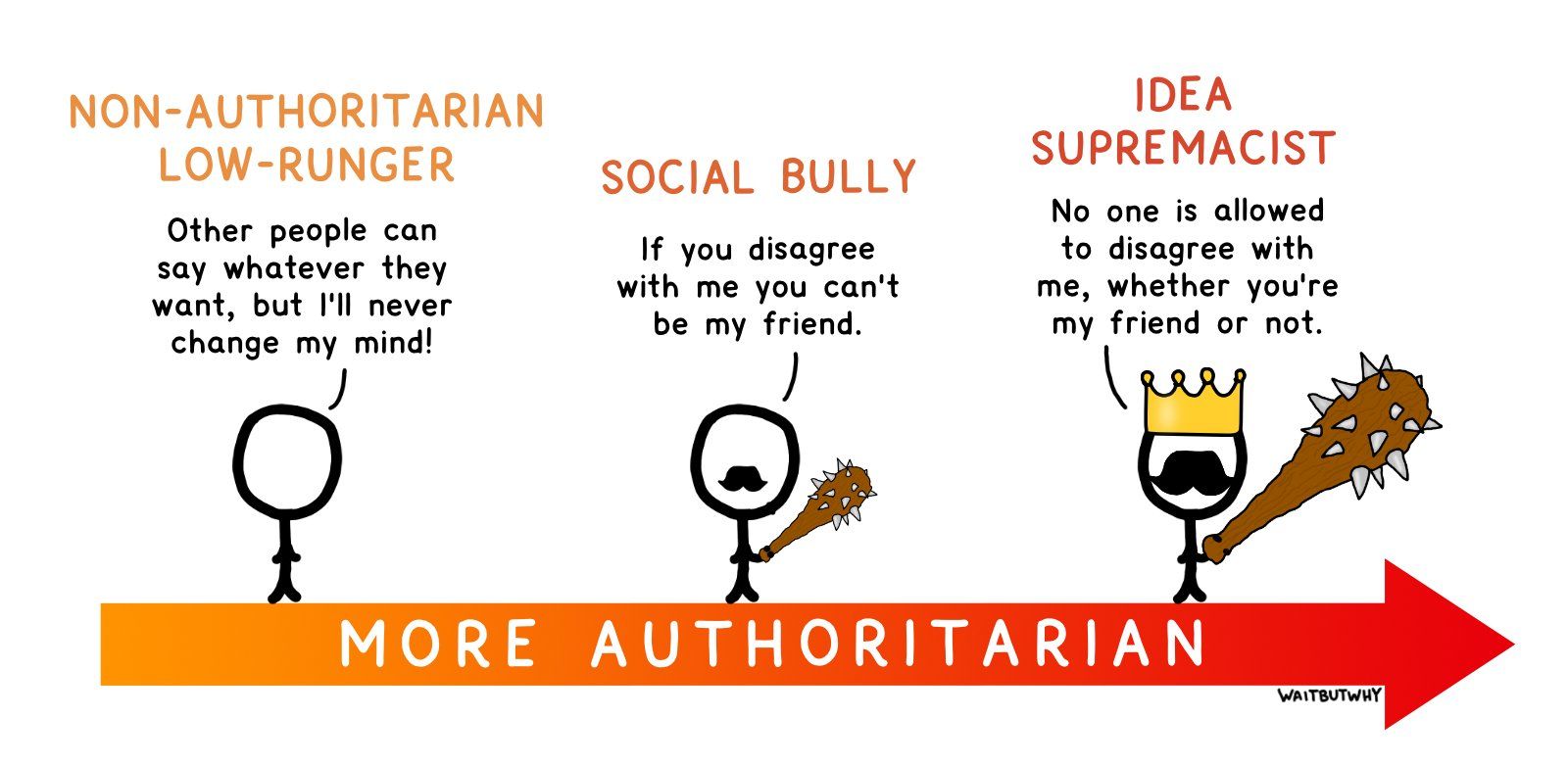On social authoritarianism
This post is part of a series on Tim Urban’s book, What’s Our Problem? a self-help book for societies.
--
In a previous post on how we think, we discussed how low-rung thinking considers ideas sacred and values conformity.
What happens when we add another dimension to this kind of thinking? We get these three groups, based on least to most authoritarian:

Non-authoritarians fail to consider other opinions and hold their ideas with complete conviction, but they don’t force their ideas on others.
Social bullies are not okay with “live and let live,” so they try to coerce their friends into agreeing with them.
Idea supremacists are not content with that, however, and believe that the ideas they disagree with are so dangerous that no one can show support for them. They also think it’s acceptable to use intimidation tactics to fight for their cause.
Urban argues that we’re currently witnessing an epidemic of low-level, idea supremacy behavior:
- In the book, he offers several examples of speech control, forced listening, and forced speaking, primarily coming from the Left of the political spectrum. The firing of New York Times opinion editor James Bennet for allowing a controversial op-ed piece to be published in the wake of George Floyd’s murder is one such example.
- He suggests that such actions lead to equally illiberal pushback from the Right of the political spectrum, creating a downward spiral that feeds on itself and leaves all of us worse off. The loss of trust in institutions is in large part why Trump’s “Stop the Steal” narrative was so effective for so long and Republican politicians who did not support the narrative were branded as traitors.
In my opinion, it is irrelevant whether idea supremacy is more prevalent on one side or the other of the political spectrum. I think of it as a pendulum that swings from one side to the other.
What concerns me most is the increasing frequency of examples of social authoritarianism. This is a sign that we are failing to see our common humanity and are instead focusing too much on our differences. The optimist in me wants to believe there’s light at the end of the tunnel, which we’ll discuss in a future post.
In the meantime, here's a question to ponder: which of your beliefs do you express publicly only because they are popular and socially favorable?